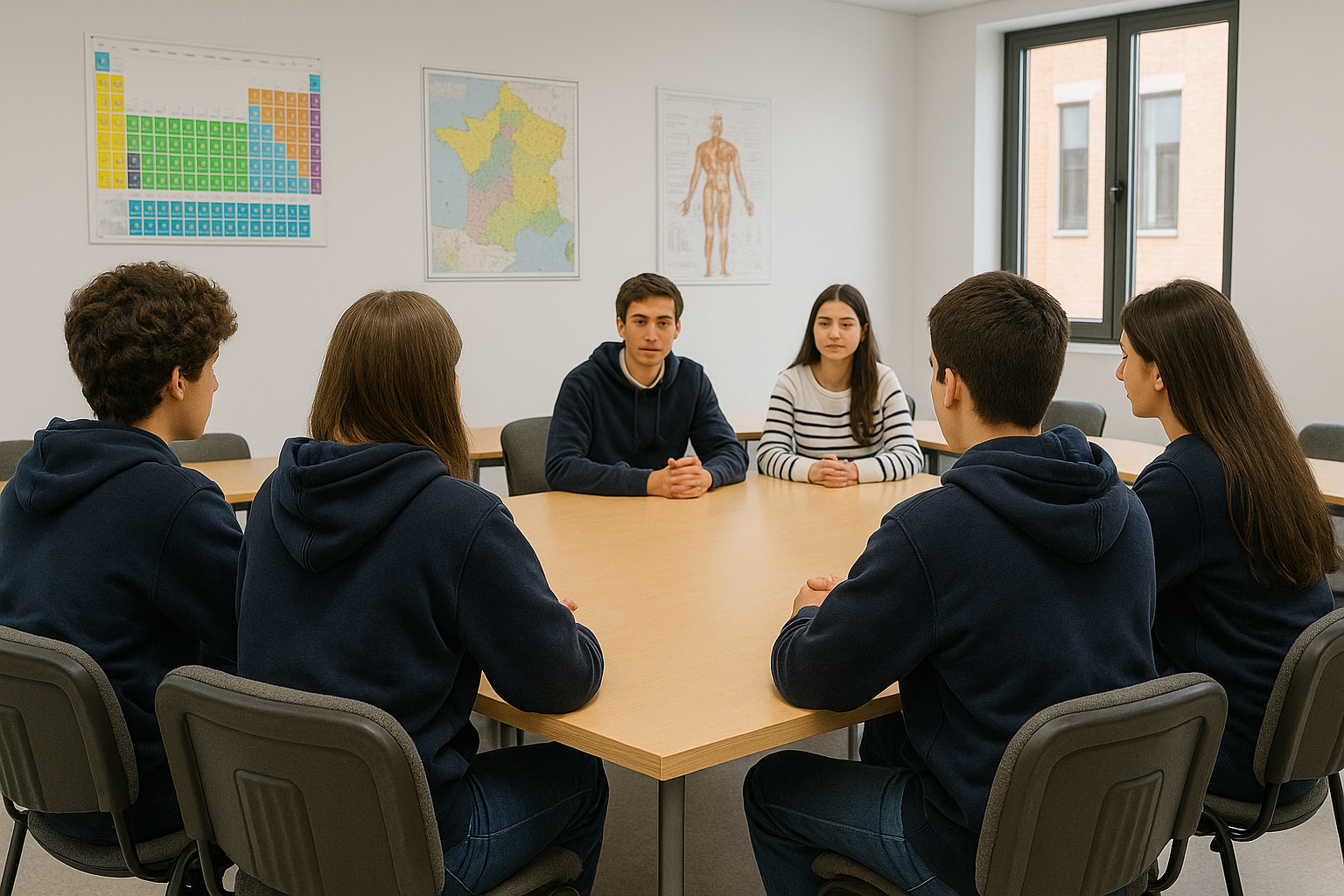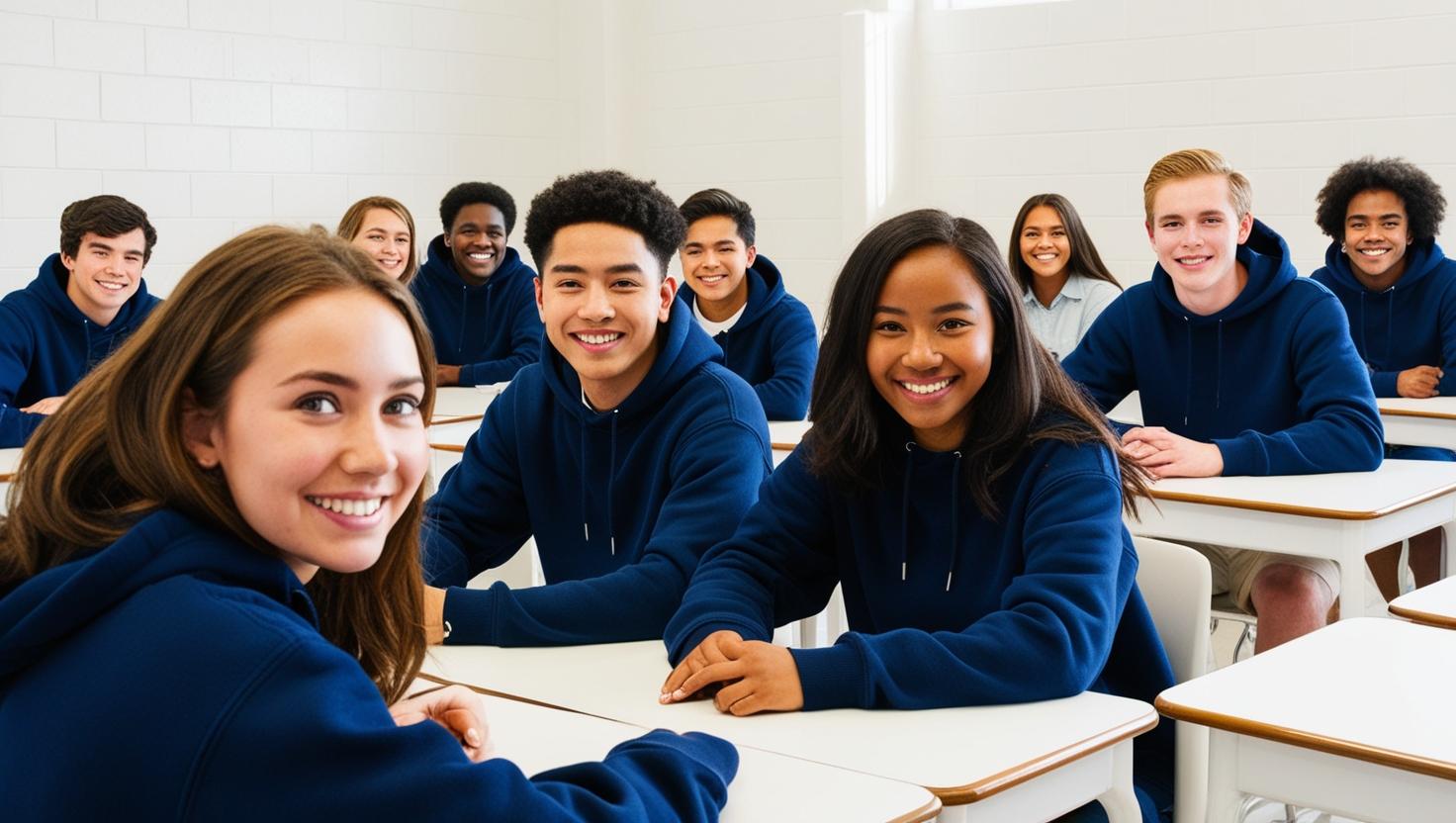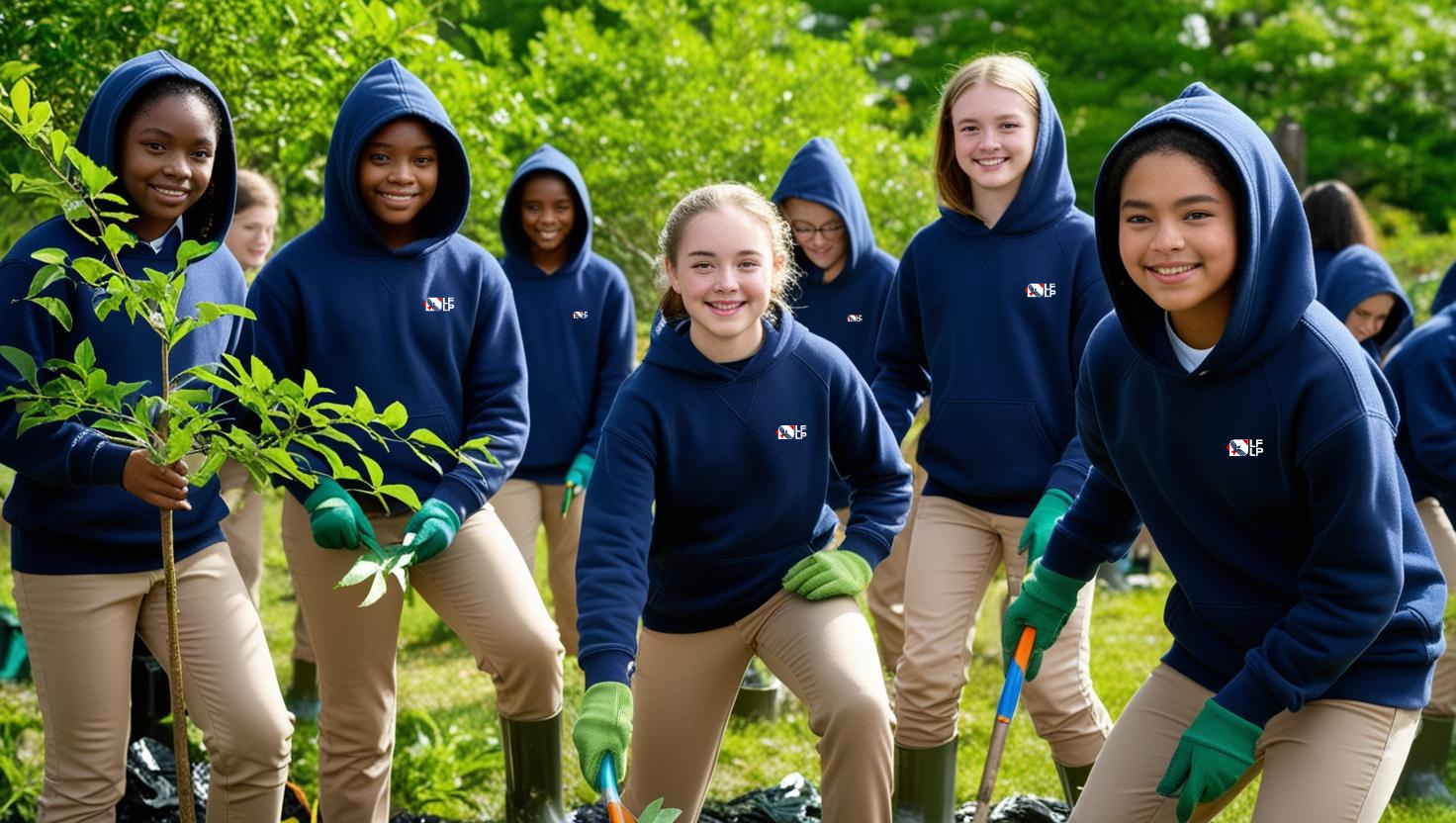Student bodies and student representatives
Representatives
CVC & CVL
At the Lycée Français Louis Pasteur of Bogotá, the CVC (Middle School Life Council) and the CVL (High School Life Council) are two key representative bodies that promote active student participation in school life. These councils foster a climate of respect, collaboration, and shared responsibility, offering students meaningful opportunities to voice their opinions and help shape their educational experience — whether in middle school (collège) or high school (lycée).
CVC – Middle School Life Council
The CVC is composed of student representatives from the middle school who are encouraged to express their views and propose ideas related to their school experience. The council focuses on topics such as student well-being, the organization of cultural, sports, and recreational activities, and improving the school environment. CVC members act as liaisons between students and school staff, enhancing communication and mutual understanding. This involvement helps students develop essential leadership and responsibility skills from an early stage.
CVL – High School Life Council
The CVL is dedicated to high school students, offering a more mature platform for student engagement in school decision-making. While its function is similar to the CVC’s, it addresses more advanced issues, such as the planning of academic and cultural events, the promotion of values, and the resolution of challenges linked to academic success and future career preparation. CVL representatives advocate for their peers and work closely with teachers and administrators to ensure a high-quality, inclusive learning environment.
In both cases, the CVC and CVL play a vital role in building a participatory and inclusive school community, where students have a voice and an active role in shaping their educational environment.
Representatives
Class representatives
Each year, students at the Lycée Français Louis Pasteur of Bogotá elect their class representatives, who serve as their spokespersons during the termly Class Council meetings. These students act as liaisons between their classmates and teachers, communicating concerns, suggestions, and ideas from the group.
During the council sessions, they raise issues related to the learning environment, classroom dynamics, and academic progress. By collaborating with the teaching staff, class representatives actively contribute to enhancing school life.
In addition to representing their peers, they encourage teamwork, promote open communication, and develop valuable leadership and conflict resolution skills.
Representatives
Personero y cabildante
As established by Colombian law, secondary students at the Lycée Français Louis Pasteur of Bogotá elect each year a Personero and a Cabildante.
In Colombian schools, the Personero is the legal representative of the student body, democratically elected to defend student rights, mediate between students and school administration, and promote a fair and respectful school environment.
The Cabildante is a class-elected representative, whose role is to act as a spokesperson for classmates and bring their concerns to the Student Council.
These two civic roles are fundamental to encouraging student participation, fostering civic engagement, and enhancing school life.
Personero
Cabildante
Representatives
Eco-delegates
At the Lycée Français Louis Pasteur of Bogotá, eco-delegates are students elected by their peers to lead and promote environmental initiatives within the school community. Their role is to raise awareness of environmental issues and inspire eco-friendly behaviors throughout the school.
Eco-delegates organize and lead sustainability projects such as recycling campaigns, clean-up drives, awareness activities on energy and water conservation, and responsible resource use. They collaborate with teachers and school staff to integrate sustainable practices into daily school life.
Being an eco-delegate means:
Serving as an ambassador for ecological transition and sustainable development among fellow students;
Promoting eco-conscious behavior in and out of the classroom;
Proposing and carrying out concrete sustainability projects within the class, the school, and the local community;
Actively participating in the school’s green initiatives.
This role is key to engaging the whole school community in building a greener, more responsible, and environmentally aware learning environment.





